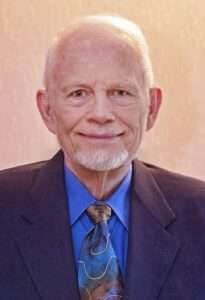
Title: Professor Emeritus
Company: Spalding University
Location: Louisville, Kentucky, United States
M. Duncan Stanton, Professor Emeritus at Spalding University, has been recognized by Marquis Who’s Who Top Educators for dedication, achievements, and leadership in psychology, research and education administration.
Dr. Stanton’s upbringing played a large role in his eventual decision to go into the field of psychology. His father was a scientist, as well as a science and mathematics teacher, and his mother had an outgoing personality. Dr. Stanton became interested in the workings of the human mind, which later shaped his career path. Dr. Stanton spent many years as both an educator and psychologist and one of his earliest positions was working as the chief psychologist at Fort Dix, New Jersey, from 1968 to 1969. He then served with the 98th Medical Detachment in Vietnam the following year. Upon returning to the United States, he worked in similar positions at Fort Meade, Maryland, and the Walter Reed National Military Medical Center, in Washington, D.C.
While in Vietnam Dr. Stanton (who was then a Captain) conducted and analyzed an anonymous research survey involving 2,372 Army personnel regarding their drug use and their estimates of such in their units. Its results drew the attention of the U.S. Senate Special Subcommittee on Alcoholism and Narcotics, which then asked Dr. Stanton to testify at their Dec. 2, 1970, Hearing on “Drug and Alcohol Abuse in the Military.” That testimony by him, including his finding among enlisted men of similar levels of admitted self-use and their estimated in-unit use, received both front page newspaper and widespread TV news network coverage across the country. Of particular note was that “The CBS Evening News With Walter Cronkite” devoted three full minutes of air-time to his testimony, including his responses to several questions by Subcommittee members. Consequently, that project became a key factor in his being awarded a Bronze Star Medal for Meritorious Service by the U.S. Army Medical Service Corps in 1971. The study was then published in the Archives of General Psychiatry in 1972.
In 1972, he began his foray into academia, joining the department of psychiatry faculty at the Perelman School of Medicine at the University of Pennsylvania as an assistant professor and later as an associate professor. While there, Dr. Stanton worked at a variety of institutions such as the Philadelphia Child Guidance Clinic, the Family Institute of Philadelphia, the Philadelphia Veterans Affairs Medical Center and the Wilmington Medical Center. In 1983, he became a tenured professor of psychiatry (psychology) and a division director within the department of psychiatry at the University of Rochester School of Medicine and Dentistry. In 1989, while tenured at the University of Rochester, he was also a visiting faculty member at Harvard Medical School’s Department of Continuing Education. He then joined Spalding University in 1997 as dean of the School of Professional Psychology and Social Work and as the vice president for academic research.
In his own academic pursuits, Dr. Stanton first attended Alfred University, earning a Bachelor of Arts in psychology in 1962. He continued his education at The George Washington University, receiving a Master of Arts in clinical psychology in 1964. In 1968, Dr. Stanton earned a Ph.D. in clinical and community psychology with minors in experimental and social psychology from the University of Maryland. He is a diplomate in both clinical psychology and family psychology under the American Board of Professional Psychology. He considers the first highlight of his career to be when he was invited to present at a conference in Canada. Subsequent to that, he received numerous other invitations to present his work, resulting in over 500 presentations/workshops in 27 different countries across five continents. One of those invitations resulted in him serving as a visiting professor for the Fulbright Commission in Argentina for a five-week period during 1991. Another highlight of his career was when the White House’s Office of Drug Abuse Policy asked the National Institute on Drug Abuse to recommend a specialist regarding the family aspects of substance abuse and, in response, NIDA told them that Dr. Stanton was “the world’s expert on the family and drug abuse.” The White House’s Office of Drug Abuse Policy thus invited Dr. Stanton to join them as a consultant, and he honorably remained in that White House role from 1977 to 1981. The author of over 150 publications, Dr. Stanton continues to publish in his field. Among his most recent publications are chapters on “Family Therapy” in The American Psychiatric Publishing Textbook of Substance Abuse Treatment (2015) and “Social Network Family Therapy” in the Encyclopedia of Couple and Family Therapy (2018). In addition, over the years he has been cited and quoted within numerous newspapers and publications, some examples being The Washington Post, The New York Times, Newsweek, Time, and Psychology Today.
Dr. Stanton has been the chair of various review committees, task forces, and site visit teams for the National Institute on Drug Abuse since 1975 as well as both the National Institute of Mental Health and the National Institute on Alcohol Abuse and Alcoholism. Since 1970, he has served on more than 75 governmental and private agency advisory boards. In recognition of his work, Dr. Stanton has received such awards as an induction to the Schenectady City School District Hall of Fame in 2008 and an Award of Appreciation from the Kentucky Division in 2004. He is also the recipient of a Distinguished Contribution to Family Systems Research Award, a Cumulative Contribution to Family Therapy Research Award in 2003, a Presidential Citation from the American Psychological Association, the Legacy Circle Award, and an Award in Appreciation for Dedication to the Enhancement of Family Life, in addition to many other prestigious awards.
Throughout his career, Dr. Stanton has maintained professional affiliations with a variety of organizations. Those organizations include the American Psychological Association, the American Family Therapy Academy, the National Council on Family Relations, the American Association for Marriage and Family Therapy, the International Family Therapy Association, the Association Sistemica de Buenos Aires, and the South African Institute of Marital and Family Therapy. He has been a grantee of the National Institute on Drug Abuse and the National Institute on Alcohol Abuse and Alcoholism and is proud that his work has been used to help others.
For more information, please visit:
Contact Dr. Stanton:
